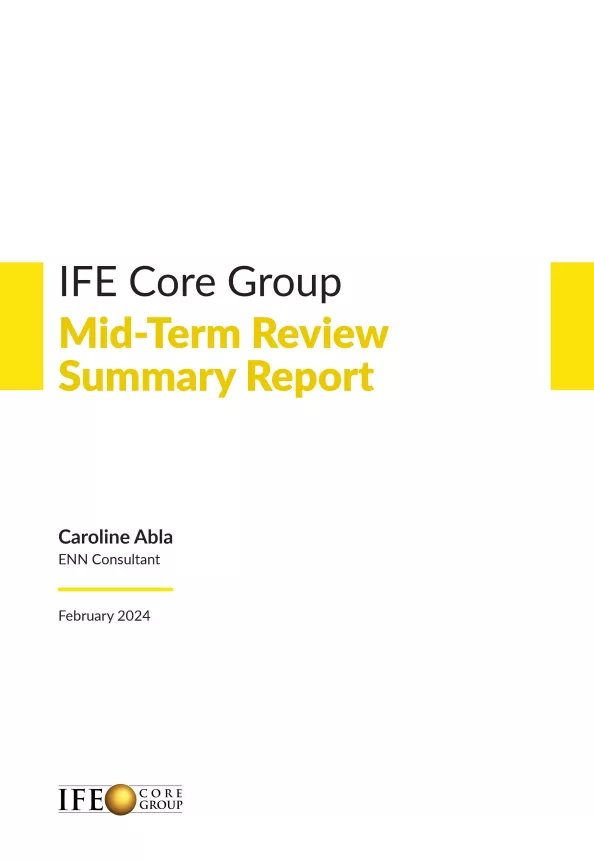IFE Core Group Mid-Term Review Summary Report
Publication details
The Mid-Term Review (MTR) was commissioned by the Emergency Nutrition Network (ENN) in 2023 to assess progress against the IFE-CG strategy, which runs from 2020 to 2024. The MTR process involved an online survey, internal and external key informant interviews and focus group discussions; this process was led by ENN consultant Caroline Abla. The purpose of the MTR was to take stock and critically examine what the IFE Core Group (IFE-CG) is doing and how it is doing it, what has worked and what has not, and whether the needs and challenges that were present when the strategy was developed remain relevant or whether new needs, challenges and, indeed, opportunities have emerged. The key findings of the MTR were presented and discussed with the IFE-CG in the 2023 IFE-CG Annual Meeting. This report describes the process, the findings and lists priority recommendations.

Download
Cite this publication
Reference this page
ENN, IFE Core Group (2024). IFE Core Group Mid-Term Review Summary Report. Emergency Nutrition Network (ENN), Oxford, UK. https://doi.org/10.71744/f8cc-wk77